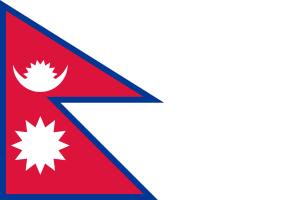Language/Nepali-individual-language/Grammar/Gender
Hi Nepali (individual language) learners! 😊
In this lesson, we will learn about the gender rules in Nepali (individual language). We will look at the different genders and how to identify them. We will also look at some examples and practice using the gender rules. Finally, we will have a quiz to test your understanding.
Rules
In Nepali (individual language), there are three genders: masculine, feminine, and neuter. The gender of a noun is usually determined by its ending.
Masculine nouns usually end in -a or -u. For example, पुस्तक (pustak) meaning "book" is masculine.
Feminine nouns usually end in -i or -e. For example, गाउँ (gaaun) meaning "village" is feminine.
Neuter nouns usually end in -o or -a. For example, घर (ghar) meaning "house" is neuter.
Examples
The following table shows some examples of nouns with their genders.
| Nepali (individual language) | Pronunciation | English Translation | Gender |
|---|---|---|---|
| पुस्तक | pustak | book | Masculine |
| गाउँ | gaaun | village | Feminine |
| घर | ghar | house | Neuter |
| बालु | baalu | boy | Masculine |
| मानी | maani | girl | Feminine |
Practice
To improve your Nepali (individual language) Grammar, you can also use the Polyglot Club website. Find native speakers and ask them any questions!
Quiz
Test your understanding of the gender rules in Nepali (individual language) with the following quiz.
Questions
1. What are the three genders in Nepali (individual language)? 2. How do you determine the gender of a noun? 3. What is the gender of the word पुस्तक (pustak)? 4. What is the gender of the word गाउँ (gaaun)? 5. What is the gender of the word घर (ghar)?
Answers
1. The three genders in Nepali (individual language) are masculine, feminine, and neuter. 2. The gender of a noun is usually determined by its ending. 3. The gender of the word पुस्तक (pustak) is masculine. 4. The gender of the word गाउँ (gaaun) is feminine. 5. The gender of the word घर (ghar) is neuter.
➡ If you have any questions, please ask them in the comments section below.
➡ Feel free to edit this wiki page if you think it can be improved. 😎
Related Lessons
- Negation
- Verbs kriyaharu क्रियाहरू
- Conditional Mood
- Questions
- Nouns
- Future Tense
- Adjectives
- Pronouns

